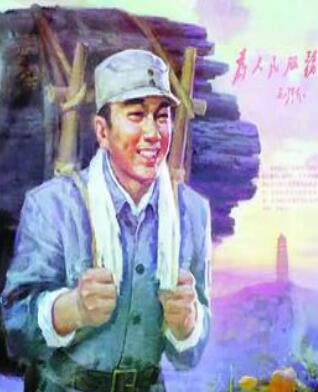
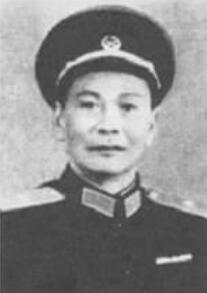
Feng pisheng, from heping farm, yuxi town, enyang district. Poor family, 8 years old private school, 194 years old father died, was forced to drop out of school. In 1927, his mother died of illness and became an orphan. In February 1933, he joined the Chinese workers' and peasants' red army and served as a soldier in the 5th company, 2nd battalion, 75th regiment, 25th division, 9th army. Due to his bravery in fighting, he was soon promoted to monitor. < / p > < p > after the attack on kaixian county back to the long field, the wounded not under the line of fire, led the class to complete the combat task, was awarded by the regiment. After recovering from the injury, transferred division of the political department, after the red 31 army 274 regiment political department, as propaganda leader. He joined the communist party of China in October 1934. In 1935, he took part in the long march and served as head of the local political department of the communist youth league and secretary of the general party branch of the red 32nd army. During the Anti-Japanese War, he served as company instructor, battalion political instructor, commissar of regiment supply department, commissar of brigade supply department, vice minister and minister of taiyue column supply department, minister of logistics department of taiyue military area command. During the war of liberation, he served as commissar of the logistics department of the taiyue military region, minister of the logistics department of the eighth column of the north China military region, and minister of the logistics department of the 60th army of the 18th corps.
After the founding of the People's Republic of China in 1949, he served successively as the head of the logistics department of the western sichuan military region, the sichuan military region and the chengdu military region, making remarkable achievements for the logistics support of the xizang border troops and the troops stationed in sichuan. In 1961, he was promoted to the rank of major general, and won the 2nd class 81 medal, 2nd class independence and freedom medal, and 2nd class liberation medal. He was also a member of the 5th national committee of the Chinese people's political consultative conference (CPPCC).
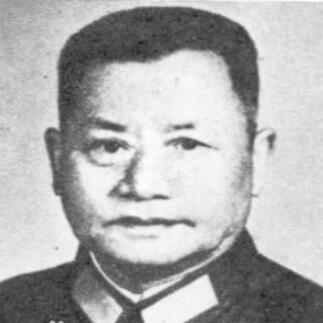
Liu zishuang, aoki town, enyang district. Joined the red army in 1933 and served as a soldier in the 8th company, 3rd battalion, 74th regiment, 9th red army. In 1934, he joined the communist party of China and served as the communications officer of the 2nd battalion, 80th regiment, 27th division. After winning the battle of crossing the river in 1935, he took part in the long march and passed the snow mountain and grassland three times. He served successively as platoon leader and vice company commander of the 80th regiment of the 27th division of the 4th red army. In October 1936, he crossed the Yellow River with the 9th red army. After the defeat of the western route army in March 1937, he returned to yan 'an. During the Anti-Japanese War, he served as political instructor of the 30th regiment company of the 10th brigade of the 129th division of the eighth route army, and then as deputy political instructor of the battalion, deputy battalion commander of the shanxi pingding county battalion, and chief of the 39th regiment of the 13th military division of the taihang military region. During the war of liberation, he was appointed commander of the 39th regiment of the 2nd military division of the taihang military area command and led his troops to participate in the battle of handan. In 1947, he was appointed deputy commander of the 25th brigade of the 9th column of the jin-jin-lu-henan military area command. Later he served as deputy commander of the fifth military division of the western henan military region, deputy commander of the xuchang military division of the henan military region, deputy commander of the 2nd garrison brigade of the military region, deputy commander of the 43rd division of the 15th corps of the 2nd field army.
After the founding of new China, he served as deputy division chief of the 4th field army and 1st anti-aircraft artillery division of the south China military region, chief of staff of the air defense command of the south China military region, second chief of staff of the air defense command of the south China military region, deputy director of the air defense command post of nanchang, and division chief of the air defense force. 1956 he entered the PLA advanced air defense school. Later, he was the commander of the air anti-aircraft artillery command of the Beijing military area command, the commander of the air anti-aircraft artillery command post of the fuzhou military area command, and the deputy chief of staff of the air force of the fuzhou military area command. In August 1964, commander liu yalou conferred the rank of major general on behalf of the CMC in Qingdao. From December 1970 to January 1978, he served as deputy commander of the air force of fuzhou military area command and later served as an adviser. He was awarded the medal of eighty-one, the medal of independence and freedom, and the medal of liberation. In 1988, he was awarded the first-grade red star merit badge of the PLA.
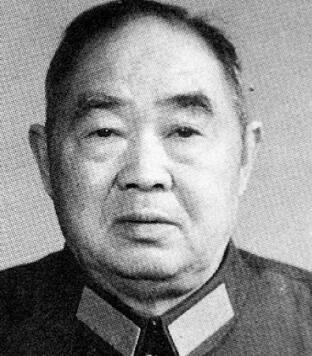
Enyang district lower eight temple town mill farm, long - term workers from. Joined the Chinese workers' and peasants' red army in 1933. He joined the communist youth league of China in 1936 and transferred to the communist party of China in 1937. He took part in three offensive campaigns in yinan, yingqu and xuanda in the sichuan-shaanxi base areas, and fought against the six-way siege, the long march of the fourth front red army, the anti-japanese and anti-" mop-up "battles and the battle of pingjin. During the period of the agrarian revolutionary war, he served as the translator of the key section of the general headquarters of the fourth front army of the red army. Took part in the long march. During the war of resistance against Japan, he served as translator, head of the unit and deputy head of the section in front of the headquarters of the eighth route army. During the war of liberation, he served as deputy section chief and section chief of the vital section of the jin-cha-ji military area command, chief of the vital section of the jin-liao military area command, deputy director of the vital section of the jin-cha-ji military area command, and chief of the vital section of the north China military area command.
After the founding of the People's Republic of China, he served as the first deputy director of the general staff department of the people's liberation army in 1955. After graduation in 1962, he became deputy director and director of the 51st research institute of the national defense science and technology commission. He was awarded the rank of senior colonel in 1955 and promoted to the rank of major general in 1964. He was awarded the 3rd class 81 medal, 2nd class independence and freedom medal and 2nd class liberation medal. After 1970, he served as deputy commander of the sichuan military region, director of the military administration committee of chengdu railway bureau and director of the revolutionary committee. Retired in 1983. In July 1988, he was awarded the first-grade red star merit badge by the central military commission of the people's liberation army.
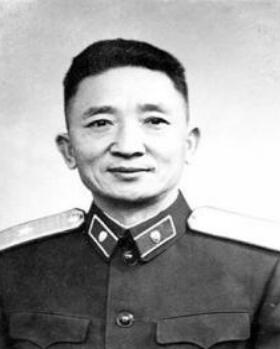
Zhang shigai, stone city and countryside, enyang district. In 1931, he joined the communist youth league of China and served as league branch secretary. On February 7, 1933, zhang shigai led 10 young men to set out from enyang, quietly took a path, and joined the red army in ba city via ba da gou and lei bo shi.
In 1933, zhang shigai served as a propagandism officer in the 12th division of the fourth red army. Later, he served as platoon leader of the security bureau of bazhong county, spy of the 30th red army, squad leader and platoon leader. In 1935, he was seriously wounded in a battle in qingchuan town, sichuan province. After his recovery, he worked as a communications officer in the red 31 army. During the Anti-Japanese War and the liberation, President of shanxi Taigu County guerrilla group deputy district chief, the eighth route army 129 division independent instructor team captain, vice battalion commander, camp, JiNa military squadron instructor, new brigade 25 battalion commander, 32 groups of staff, 9 JiNa military brigade 4 12 group deputy head, head, guangdong hebei shangdong and henan province, director of the hubei theater longitudinal 28 brigade 84 10 tongbai military brigade deputy brigade commander, 28 the 58th army 72 division of the central plains military region deputy commander, military region of hubei province 4 teacher teachers independently.
After the founding of the People's Republic of China, he served successively as the director of the combat department of the headquarters of the public security forces, the division commander of the 20th railway public security forces, and the division commander of the 3rd public security forces. After 1959, he served as deputy director of the public security department of shaanxi province, commander of the general police corps, and President of the academy of the people's armed police force. After 1969, he served as commander of the 54th base of the 2nd artillery corps, deputy chief of staff of the 2nd artillery corps, and adviser to the command. He left in 1980. In 1988, he was awarded the first grade red star merit award.

Zhang side, sichuan yilong county liuhe township han jiawan, born on April 19, 1915. In February 1933, the red army liberated zhang's hometown, yilong hanjiavan, and he was sent to enyang wenchang palace to study at Lenin high school. After graduation, he was selected as a guard soldier by the security bureau of sichuan-shaanxi Soviet government. In October 1937, zhang joined the communist party of China.
From 1933 to 1934, when the kuomintang crushed two large-scale sieges on the sichuan-shaanxi base (sichuan-shaanxi Soviet area anti - three sieges, sichuan-shaanxi Soviet area anti - six sieges), zhang side killed the enemy bravely, repeatedly made achievements, was praised as "little tiger" by his comrades. In the early summer of 1940, in order to solve the problem of winter heating for the central government, he took his team to burn charcoal in the mountains and forests of tuhuanggou, south of yan 'an. After three months of hard work, he finally delivered 80,000 jin of charcoal to the village after cutting trees, burning fires, discharging kilns, binding and transporting Yanan.
In 1944, zhang side also took people up the mountain to burn charcoal. < / p > < p > zhang side and his comrades stone barns hit a big kiln connected to a small kiln, stone barns in the big kiln poked chimney, zhang side in the small kiln poked fire door. Stone cang suddenly found the kiln in the soil, hurriedly shouted: "monitor! No, the kiln is falling down!" Zhang side immediately ordered: "you go out!" Shi cang just ran to the mouth of the cave, only to hear "wow! "Of, the kiln collapsed, comrade zhang side unfortunate sacrifice. 29 years old! Chairman MAO paid tribute to zhang by writing a famous essay, "serving the people," in which he wrote, "death to all men is more important than mount tai or lighter than hong... Comrade zhang side died for the benefit of the people. His death is heavier than mount tai."
Revolutionary martyr Zheng yizhai
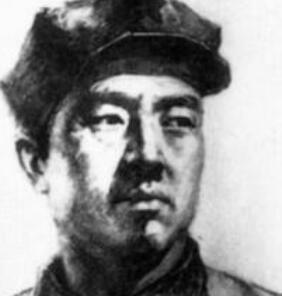
Zheng yizhai is an outstanding logistics worker of the Chinese workers' and peasants' red army. He served successively as the chairman of the finance committee of the democratic government of hubei, henan and anhui, concurrently as the director of the general manager of the red fourth army, and then as the minister of the general manager department of the red fourth army (logistics department) and the minister of the general supply department of the west route army. He in difficult conditions, through a variety of efforts to raise food, salt, bedding, medicine, ammunition and other materials, he also according to the actual situation of hubei, henan and anhui Soviet areas, established a set of financial economic system, to ensure the smooth development of the Soviet economy.
In March 1937, the west route army was defeated in the battle of liyuankou. The independent regiment was ordered to cover the transfer of other troops and fought a fierce battle with the enemy. Hua quan shuang and his four comrades were trapped on the top of a mountain in yak mountain. Seeing the fierce enemy approaching the mountain, they couldn't fight and couldn't retreat. Finally, they decided to sacrifice their lives for justice. Just then a volley of enemy shells sent them flying over the cliff. Four other comrades were killed in the cold valley. Hua quan shuang was hanging from a branch of a tree below, wounded in three places. Later, the search for their comrades found the unconscious past hua quan shuang, the leggings together to save her. Hua quanshuang and several of his comrades spent more than two months in the remote mountains and forests of qilian. After multi-party rescue, hua quan shuang finally returned to the embrace of the party. The "five warriors of langya mountain" are all male soldiers, while the "five warriors of yak mountain" are all female soldiers. Their heroic deeds deserve to be remembered by future generations.